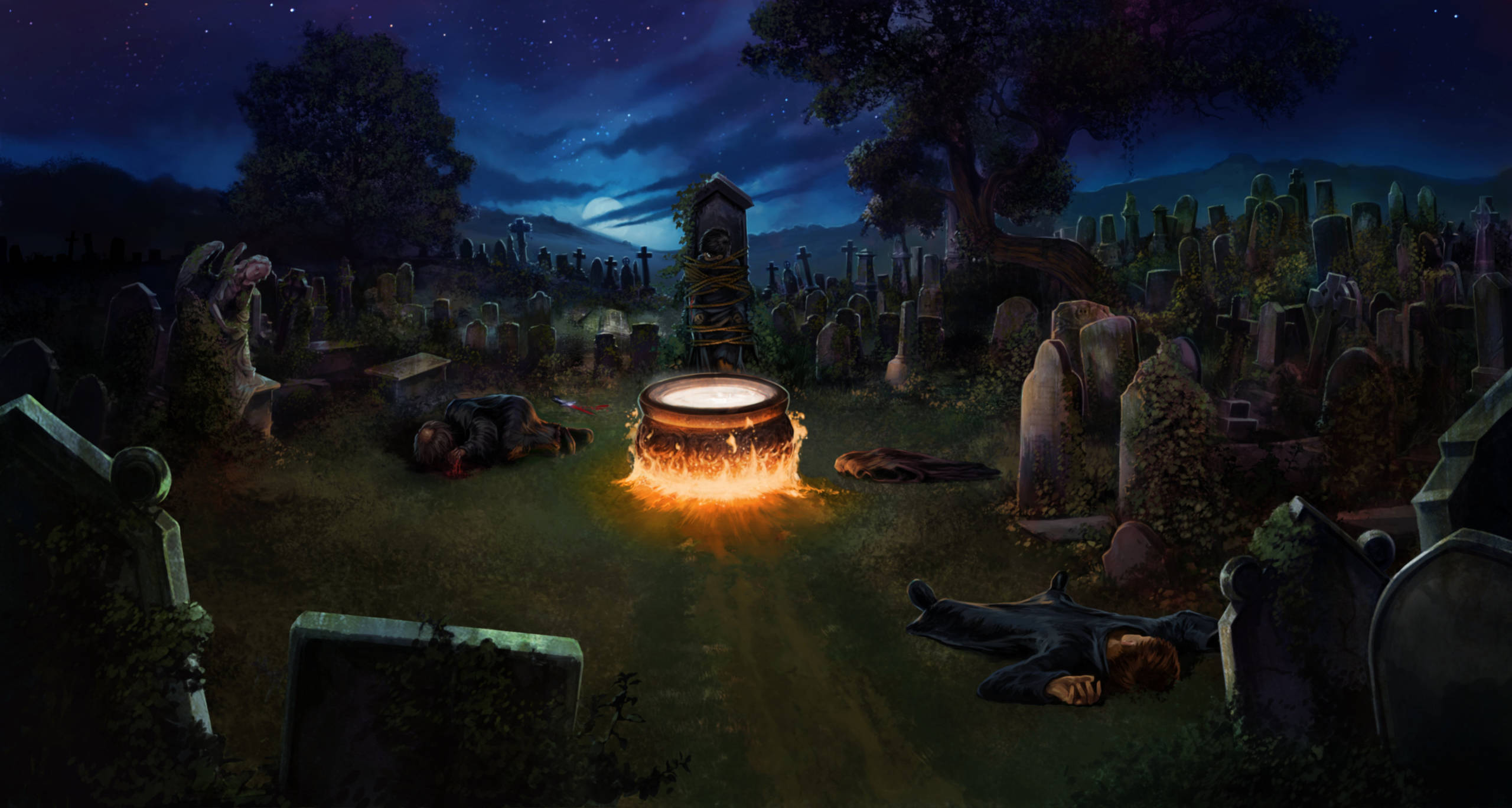
When Voldemort’s Death Eaters arrive to witness his resurrection, he tells them a tale of near-death and half-life, of years spent inhabiting animals, the possession of Quirrell, and his pursuit of the Philosopher’s Stone. And all of this, he implies, is the very least of it. Almost everything Voldemort has done has been in pursuit of a goal he believes only he is capable of achieving: immortality.
But Voldemort isn’t the first character, fictional or otherwise, to lust after immortality. We only need to look at the long-established legend of the Philosopher’s Stone and its Elixir of Life to confirm this. So where did this concept of eternal life come from and how has it become so entrenched in our culture? Here’s our handy guide…
What is immortality?
The dictionary definition of immortality is, literally, the ability to live forever, although there are other figurative interpretations – to say something or someone has achieved immortality might also mean they are timeless, or that their reputation is so renowned they will never be forgotten. But Voldemort desires immortality in the literal sense of never dying. He knows he won’t be easily forgotten. He wants eternal life.

Where did it originate?
The concept of eternal life is as old as (mortal) life itself. Almost all the major world religions, including Buddhism, Christianity, Hindusim, Islam and Judaism, believe in an afterlife, and the ‘immortality of man’ (specifically, the immortality of the soul) was a key tenet of the Ancient Greek philosopher Plato, but there are stories of physical immortality – the quest to remain alive – stretching back just as far.
Immortality in ancient cultures
The Mesopotamian poem The Epic of Gilgamesh is considered by many to be the earliest surviving work of literature, and at over 4,000 years old it dwells on its hero’s quest to become physically immortal. Meanwhile, around 200 BC, the first Emperor of China, Qin She Huang, was so obsessed with achieving immortality that he probably killed himself by eating mercury, which was thought to have life-lengthening properties. Oh, the irony.
In the fourteenth century the real Nicolas Flamel – who appears in Philosopher’s Stone as the owner of the life-lengthening Stone so coveted by Voldemort – was said to have used the Stone’s Elixir to live for centuries, moving with his wife from their native France to India after faking their own deaths.

Is immortality achievable?
So, is it actually possible to live forever? It depends. Even within the literal definition, there are different meanings. Some theorists talk about biological immortality – the absence of ageing – as being theoretically achievable if scientific advances continue, but this would not mean being invulnerable to physical harm. In other words, biological immortality might stop you getting sick but it wouldn’t stop you getting hit by a bus. So: swings and roundabouts.
The reason for this belief is because there is one species in existence which has biological immortality – the Turritopsis dohrnii, aka the immortal jellyfish. Studies show this tiny little organism not only refuses to die, but actually appears to age in reverse, growing younger until, at its earliest point, it begins its life cycle again. It’s been called the Benjamin Button jellyfish, after the F Scott Fitzgerald short story and 2008 film that tell the story of a man who ages backwards. Unlocking the secrets of the immortal jellyfish could spell unlimited possibilities for humankind.

Immortality in fiction
Since The Epic of Gilgamesh, the idea of an immortal human or human-like creature has dominated fiction. Vampires, a staple of fiction since the early eighteenth century, are very hard to kill, being immune to death unless under very specific circumstances – a stake to the heart, say. Other stories fix immortality to an object, like Dorian Gray’s portrait in Oscar Wilde’s The Picture of Dorian Gray, and still others freeze characters in an eternal, immortal sleep, as with Sleeping Beauty in the fairytale and the White Witch in CS Lewis’s The Chronicles of Narnia.
Defeating death
Back in the wizarding world, Voldemort is hardly the only one to hanker after immortality, despite wizards tending towards longer lives than their Muggle counterparts. Nicolas Flamel, for one, was 665 years old during Harry’s first year at Hogwarts. The difference is the lengths to which Voldemort is willing to go, and the sheer arrogance he will show in his desire to conquer death.
Voldemort’s understanding of immortality is crude, but not all interpretations are so dark and vampiric. The old philosophical concept of the immortality of the soul is about the idea that a person lives on in a non-physical sense, in some kind of afterlife, or through the people who have loved them. Much like the protection given to Harry by his mother – a protection Voldemort covets but will never understand.

Want to join the Wizarding World Book Club? Sign up here to read along, gain awards and discover new content every week. You can also join the conversation over on Twitter.


